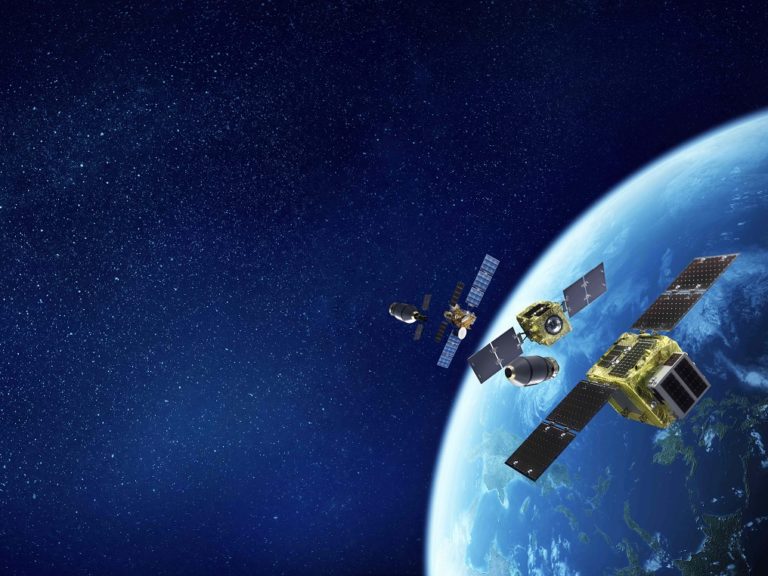G7 Leaders and Astroscale Share a Vision for Space
On Sunday, June 13, at the G7 Leaders’ Summit in Carbis Bay, Cornwall, UK, delegates from Canada, France, Germany, Italy, Japan, the UK, the USA, and the EU released a joint statement pledging to take action to tackle the growing hazard of space debris and highlighting their commitment to the safe and sustainable use of space to support humanity’s ambitions now and in the future. The statement also emphasized the importance of developing common standards, best practices and guidelines related to sustainable space operations alongside the need for a collaborative approach for space traffic management and coordination.
“Yesterday’s G7 joint statement recognizes the urgent need for debris removal and on-orbit servicing activities to protect our orbital environment as an international asset,” said Nobu Okada, Founder & CEO of Astroscale. “Global cooperation among all stakeholders is critical to turn international guidelines into common practice and commercially viable services. Our ELSA-d mission will demonstrate the technology to dock and remove space debris this year, and we embrace the opportunity to work in partnership with space-faring governments and industry going forward.”
The growth in large satellite constellations presents tremendous opportunity for global connectivity and growth, but also environmental concern if congested orbits remain unmanaged. Latest figures from the European Space Agency suggest there are over 128 million debris objects larger than 1mm in space, including the most hazardous objects such as defunct satellites and upper stage rockets.
“We’re delighted that space sustainability is receiving high level attention with G7 leaders,” said John Auburn, Astroscale UK’s Managing Director and Group Chief Commercial Officer. “Space debris is a very real challenge for governments and large constellation satellite companies, and tackling the problem requires national support for globally agreed norms of behavior, political leadership and partnership between the private sector and governments to protect space for future generations and start cleaning up space now.”
Astroscale is developing numerous services that respond to the global challenge of space sustainability. ELSA-d, the world’s first end-to-end demonstration of orbital debris removal, was successfully launched on March 22, 2021, from the Baikonur Cosmodrome in Kazakhstan. The spacecraft will be operated from the In-Orbit Servicing Control Centre in Harwell, UK, and will demonstrate the technologies and capabilities necessary for debris capture and removal this summer.
Last month, Astroscale UK announced a funding award from partners OneWeb, the global satellite communications network, to mature Astroscale’s satellite end-of-life technology and capability towards a commercial service offering by 2024. Other future missions include Phase I of the Japan Aerospace Exploration Agency’s Commercial Removal of Debris Demonstration project, scheduled to launch in early 2023, and Astroscale U.S., and its subsidiary, Astroscale Israel, are working to launch the company’s first satellite life-extension platform in geostationary orbit.
“We applaud G7 leadership for this commitment to space sustainability, and we hope to see governments around the world turn this intent into action by committing resources to achieve tangible outcomes,” said Ron Lopez, President and Managing Director of Astroscale U.S. “Societal services and benefits, exploration beyond our planet, and the growing space economy all require a safe, secure, and well-managed orbital environment, and Astroscale is excited to work with global partners to make that environment a reality.”
In addition to developing the technologies, Astroscale is defining business cases and working with policymakers to ensure debris issues are addressed and servicing opportunities for sustainability are realized.

 Visit U.S. Site
Visit U.S. Site




